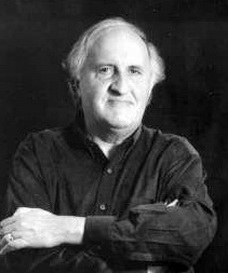Related Research Articles
Manfred Siebald is a German singer-songwriter and lecturer in American studies in Mainz.
Dieter Trautwein was a German Protestant theologian and writer of numerous Christian hymns of the genre Neues Geistliches Lied (NGL).

Neues Geistliches Lied, abbreviated NGL, is a music genre of songs in German intended for church usage, and based on contemporary lyrics and with music by contemporary composers.

Martin Gotthard Schneider was a German theologian, church musician, Landeskantor, songwriter, and academic teacher. He is known for prize-winning songs of the genre Neues Geistliches Lied, such as "Danke" and "Ein Schiff, das sich Gemeinde nennt".
TAKT is a group of writers and composers of new songs for use in Christian churches, initiated in 1947. The genre which the members promoted was later called Neues Geistliches Lied. The name is short for TextAutor/innen- und Komponist/innen-Tagung, a name that the group adopted in 1997.

"Das Weizenkorn muss sterben" is a poem by Lothar Zenetti, based on The Grain of Wheat. With a 1972 melody by Johann Lauermann, it became a Christian hymn of the genre Neues Geistliches Lied (NGL), appearing from 1975 in German hymnals. It is popular, and is regarded as Zenetti's signature work.

"Meine engen Grenzen" is a Christian poem by Eugen Eckert, written in 1981, and made a hymn of the genre Neues Geistliches Lied with a melody and setting by Winfried Heurich the same year. The song, bringing one's shortcomings and limitations before God and praying for a broader perspective, is part of the common German Protestant and Catholic hymnals, and of other songbooks.
"Einer ist unser Leben" is a poem in five stanzas, written by Lothar Zenetti in 1973. It became a Christian hymn of the genre Neues Geistliches Lied (NGL) with a 1971 melody by Jean Liesse. The song is part of many hymnals, both Catholic and Protestant, and of songbooks, remaining popular in the 21st century.
"Komm, Herr, segne uns" is a Christian hymn in German in four stanzas with text and music by the Protestant pastor Dieter Trautwein, written in 1978. It is a hymn of the genre Neues Geistliches Lied (NGL), appearing in German hymnals of different denominations, including the Protestant Evangelisches Gesangbuch and the Catholic Gotteslob. It begins with the line "Komm Herr, segne uns, dass wir uns nicht trennen".
"Hilf, Herr meines Lebens" is a Christian hymn, with a text mostly written in 1961 by Gustav Lohmann, and a melody composed the following year by Hans Puls. The song, of the genre Neues Geistliches Lied (NGL), is part of German hymnals, including Gotteslob, and songbooks. It begins: "Hilf, Herr meines Lebens, dass ich nicht vergebens hier auf Erden bin".
"Selig seid ihr, wenn ihr einfach lebt" is a Christian hymn written in 1979. The song, of the genre Neues Geistliches Lied (NGL), is included in hymnals both Protestant and Catholic, and in other songbooks.
"Wenn das Brot, das wir teilen" is a Christian hymn, with a text written in 1981 by Claus-Peter März, and a melody by Kurt Grahl. It was written to commemorate St. Elisabeth, and begins with a reference to her Miracle of the Roses. The song, of the genre Neues Geistliches Lied (NGL), is part of German hymnals, including Evangelisches Gesangbuch and Gotteslob, and of songbooks.
Habakuk is a German pop band from Frankfurt, formed in 1975. The group is focused on new Christian music of the genre Neues Geistliches Lied.
"Herr, gib uns Mut zum Hören" is a Christian hymn, with text and melody written in 1963 by Kurt Rommel. The song, of the genre Neues Geistliches Lied (NGL), is part of German hymnals, including Gotteslob, and of songbooks.
Kurt Rommel was a German Protestant pastor of the Evangelische Landeskirche in Württemberg, author of spiritual books, and hymnodist. He wrote text and tune of hymns contained in both Protestant and Catholic hymnals.

"Bewahre uns, Gott" is a Christian hymn with text by Eugen Eckert to a melody from Argentina, of "La paz del Señor". The song of the genre Neues Geistliches Lied, a prayer for protection in hard times, is contained in several hymnals and songbooks ecumenically. Several of these list it as "Bewahre uns, Gott, behüte uns, Gott"
"Wo ein Mensch Vertrauen gibt" is a Christian hymn with text by Hans-Jürgen Netz, written in 1974, with a melody by Winfried Heurich and Fritz Baltruweit. The song of the genre Neues Geistliches Lied was included in hymnals and songbooks.
"Ich lobe meinen Gott von ganzem Herzen" is a Christian hymn in German, with a first stanza by Gitta Leuschner, written in 1980, and two more stanzas that Günter Balders added in 2002. The text is based on Psalm 9. The original song came from France and was a rather close paraphrase of the psalm, to a melody composed by Claude Fraysse in 1976. The song of the genre Neues Geistliches Lied (NGL) has appeared in the German Protestant and Catholic hymnals and songbooks, especially collections for children.
"Kommt herbei, singt dem Herrn" is a Christian hymn with text by Diethard Zils in 1972, a paraphrase of Psalm 95 to an Israeli melody. It is of the genre Neues Geistliches Lied (NGL), published in 1972. In the 2013 Catholic hymnal Gotteslob, it appears as GL 140. It is also contained in other hymnals and songbooks.
"Ins Wasser fällt ein Stein" is a 2001 Christian song with text by Manfred Siebald, with a melody by Kurt Kaiser. The hymn of the genre Neues Geistliches Lied is contained in several hymnals and songbooks.
References
- 1 2 "Geh unter der Gnade (Alte Stunden, alte Tage)". evangeliums.net (in German). 2023. Retrieved 6 September 2023.
- ↑ "Geh unter der Gnade". christusallein.com (in German). 2012. Retrieved 6 September 2023.